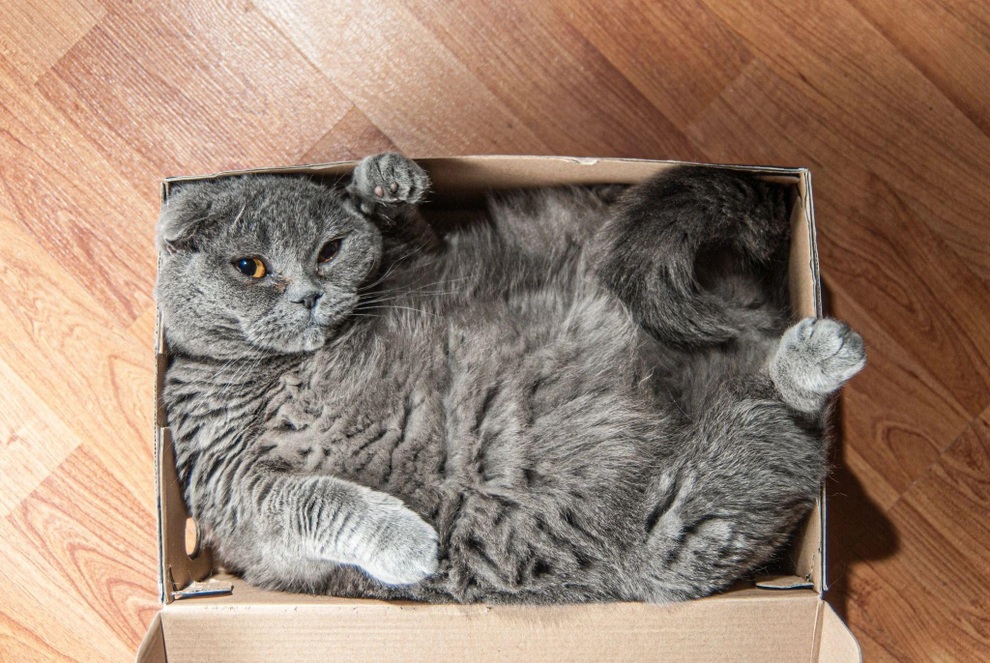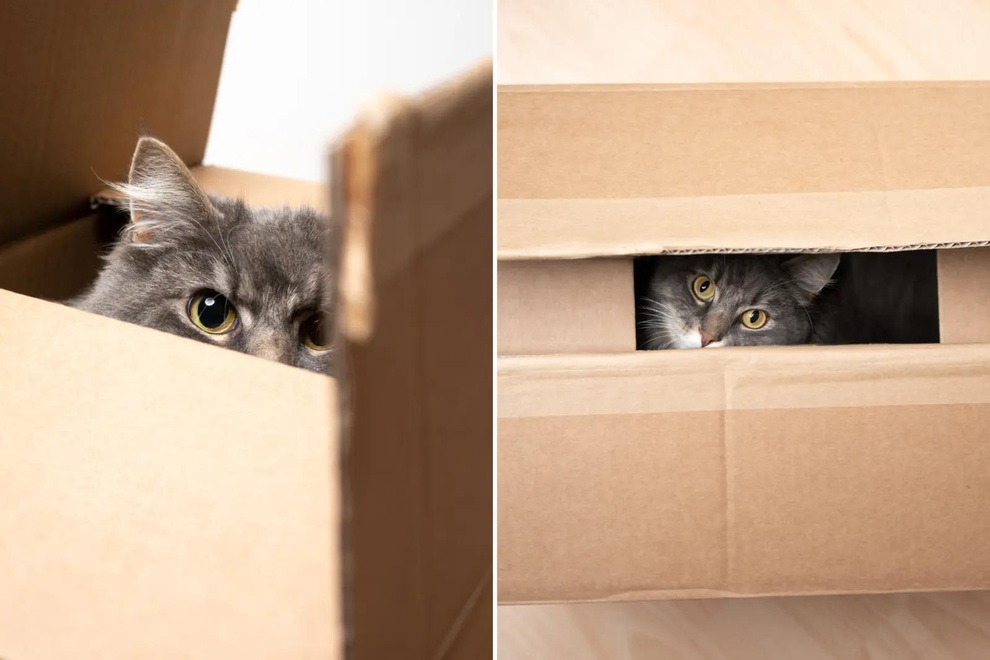Cats' love for cardboard boxes is a combination of instinct, evolution and emotional need.
If you’ve ever watched your cat pass up an expensive toy in favor of a cardboard box, you’re not alone. This phenomenon isn’t just a strange feline preference, it’s also a testament to one of the most universal truths in the feline world : a never-ending love affair with cardboard boxes.
This love, which may seem confusing at first, is actually deeply rooted in cat behavior and evolution.
Ideal ambush spot and safe haven
Behavioral experts say that cardboard boxes are more than just a mere object, they are an instinctual tool that gives cats a sense of control, security, and hunting opportunities, in keeping with their wild nature.

Mikel Delgado, a pet behavior expert at Purdue University, explains that despite living alongside humans for thousands of years, domestic cats still retain most of their wildcat instincts.
In the wild, they are both hunter and prey, and survival depends on the ability to hide, observe and strike quickly. Cardboard boxes provide an ideal ambush site, helping cats conceal their shape, avoid detection by predators, and at the same time giving them the opportunity to pounce suddenly, simulating hunting behavior.
Not only related to hunting instincts, cardboard boxes also act as a safe haven. For shy individuals or those living in a changing environment, the box becomes a private space where they feel secure.
Cats are often drawn to places that are private, warm, and secluded, a behavior that stems from the time mother cats choose secluded corners to give birth, Delgado says.
A kitten’s first experience is curling up in a small, warm, sheltered space, so as adults they tend to return to this familiar feeling whenever they need psychological security, says Danielle Gunn Moore, professor of feline medicine at the University of Edinburgh.
Several studies have shown that when feral or newly adopted cats are provided with cardboard boxes, their stress hormone levels drop significantly. This explains why a simple box can make a big difference in a cat’s behavior, especially during a transition period.
New objects to explore
For curious cats, a cardboard box is not only a place to hide, but also a new object worth exploring. Any change in territory can stimulate their investigative instincts.

A cat's obsession with cardboard boxes also reflects a part of its inner feelings. Delgado analyzed that a cat lying still in a box for hours could be a sign that it is seeking security, but a cat dozing or jumping in and out of the box has a different meaning.
Context is the deciding factor in understanding behavior, reminding owners to pay attention to the cat's psychological state rather than just looking at its appearance.
Another reason why cardboard boxes are important is because a pet cat's habitat is much more limited than a wild cat's. In the wild, a cat can escape to a rooftop, burrow, or climb a tree if startled.
But apartment cats don’t have many options, especially when faced with strangers or unexpected sounds, so the box becomes an easily accessible shelter and a place to cool down emotionally.
A cat's behavior toward cardboard boxes is also strongly influenced by early childhood experiences. The period from 2 to 9 weeks of age is when kittens learn most rapidly about their environment.
If they are properly cared for during this period, regularly exposed to humans and rewarded with food, they will be better able to adapt to the changes as adults. Conversely, kittens who have had difficult childhoods are often more alert and sensitive.
For them, cardboard boxes are an almost compulsive need because it helps compensate for the sense of insecurity that was formed early on.
Experts warn, though, that cardboard boxes aren't always a positive sign. Gunn Moore notes that cats need a place to hide when they're feeling out of control, but if they're hiding all day, it could be a sign of poor health or excessive stress.
Delgado agrees and recommends that owners take their cats for a veterinary checkup if they notice unusual hiding behavior, and seek out a behaviorist if psychological intervention is needed.
